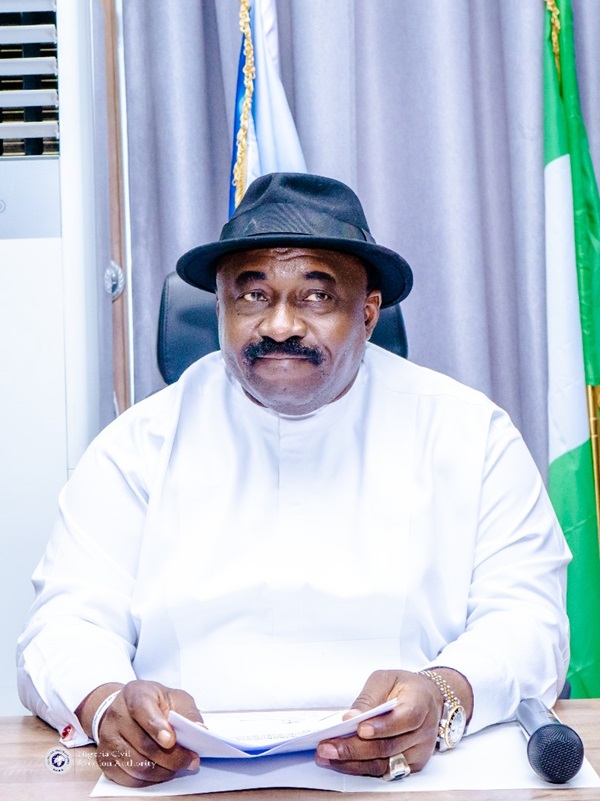
The Minister of Aviation and Aerospace Development, Mr. Festus Keyamo, SAN, and the director-general of the Nigeria Civil Aviation Authority (NCAA), Capt. Chris Najomo have stressed the need for technological adaptation and deeper economic regulation to enhance aviation safety in Nigeria.
Speaking at the NCAA’s 25th-anniversary symposium in Abuja over the weekend, they highlighted the role of innovation and human capital development in shaping the future of the aviation sector. The symposium, themed “Human Capital Development: Upskilling the Next Generation of Aviators,” brought together industry experts to discuss the evolution of aviation safety and workforce development.
Represented by the permanent secretary of the ministry, Dr. Ibrahim Kana, Keyamo acknowledged the NCAA’s achievements over the past 25 years but emphasised that sustaining these successes requires continuous safety planning, stakeholder collaboration and the adoption of innovative training methods.
“While NCAA has recorded significant successes, maintaining these achievements demands a deliberate focus on safety, collaboration and technological advancements, particularly in training and retraining,” he stated.
He further noted that the Silver Jubilee celebration highlights aviation safety as the bedrock of industry growth, stressing that safety is not a one-time accomplishment but a continuous process of adaptation and improvement.
“As technology advances, passenger demands rise and globalisation increases, the dynamics of aviation safety continue to evolve rapidly,” he added.

Similarly, Najomo underscored the need for strategic planning and global best practices to propel the industry forward.
“As we celebrate our current achievements, we must also look ahead to embracing new technologies, improving operational efficiencies, and fostering partnerships that will elevate Nigeria’s aviation industry to greater heights,” he said.
Najomo reaffirmed the NCAA’s commitment to the five-point agenda of the minister and President Bola Tinubu’s ‘Renewed Hope’ agenda, which prioritise infrastructure development, safety enhancement, economic growth and job creation.
“As we chart our course for the next 25 years and beyond, we must uphold the highest standards of safety, efficiency and international best practices,” he added.
To strengthen NCAA’s economic regulatory framework, Najomo announced that a team of International Civil Aviation Organisation (ICAO) trainers would be invited to train NCAA staff on effective economic regulation.
Keynote speaker and former Rector of the Nigerian College of Aviation Technology (NCAT), Samuel Akin Caulcrick, emphasized the importance of investing in subsidised aviation training.
“By prioritising human capital development, Nigeria can cultivate a skilled workforce that will drive growth and innovation in the aviation industry,” he said.
NCAA’s director of human resources and chairperson of the NCAA @25 Planning Committee, Dr. Anastasia Gbem reiterated the agency’s commitment to aviation safety.
“We cannot achieve safer skies without investing in human capital. Workforce development remains a top priority for NCAA,” she stated.
Chief Operating Officer of Ibom Air, George Uriesi, commended NCAA’s regulatory effectiveness, noting that “The NCAA is professional, ensuring compliance with industry standards, regardless of personal relationships.”
The deputy chairman of the Senate Committee on Aviation also praised NCAA’s contributions to the sector, reaffirming the Senate’s support for policies that enhance safety and efficiency in Nigeria’s aviation industry.

